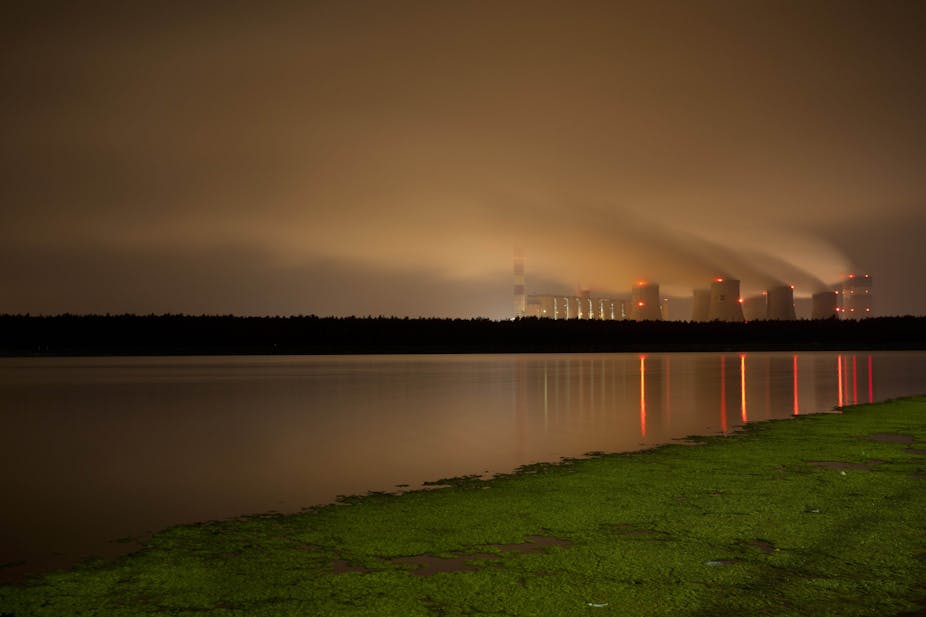Project: Quantify the benefits of decentralised, renewable energy production
Cost: $3 million
Timeframe: Three years
Burning fossil fuel causes CO₂ pollution. But organisations making profits from selling energy from oil and gas don’t pay the costs of that pollution. This gives fossil-fuels a price headstart in the energy generation race.
In recent years, governments in a number of countries have tried to rebalance the situation by instituting a Mandatory Renewable Energy Target. In Australia this scheme is administered through a system of Renewable Energy Certificates.
Essentially, this system gives renewable energy a way in to a field previously dominated by fossil fuel. It can support energy generation at a smaller scale and in diverse locations, often closer to where the energy is needed.
As well as reducing carbon dioxide pollution, there are a range of other benefits that flow from producing renewable energy in this decentralised manner.
For one, decentralised energy production can improve local electricity grid power quality and defer (or reduce) the need for:
- expensive peaking supply electricity plants (plants that pick up the slack in times of high demand)
- electricity grid transmission and distribution capacity upgrades.
There is already some recognition of the reduced grid upgrade costs that result from decentralised power generation. But having this better quantified across a range of energy systems would be a useful project and how I would spend part of my blank cheque.
Particular energy sources offer specific economic benefits. For example, a US National Renewable Energy Laboratory report showed decentralised biomass energy systems can use a variety of waste streams, create substantial numbers of local jobs and reduce landfill. Quantifying the economic value of these systems in Australia would help to level the playing field with large fossil fuel systems.
I’ve spoken to Regional Development Authorities about biomass systems and the first question they ask is: How many local jobs will be created?
Rooftop photovoltaics and hot water can provide some degree of energy autonomy for individual houses and reduce the need for income during retirement. As I argued in a recent ReNew magazine article, given recent gyrations in financial markets, what would you rather trust for your energy supply: superannuation income or the sun coming up in the morning?
Another benefit of decentralised renewable energy systems is their resilience. Centralised systems can be knocked out by earthquakes, cyclones, floods and terrorism; decentralised systems are less likely to be affected.
The fragility of centralised energy supplies in modern economies has been demonstrated in recent years. Think of the Christchurch earthquakes, the Longford gas explosion in Victoria, Hurricane Katrina and the Auckland electricity cable breakdown.
When energy supplies are lost through such events, the outcomes can include personal hardship, economic loss, disease and even death. All of these depend on factors such as climate (think about what happens when refrigeration and air conditioning go out in the middle of summer), the length of disruption to energy supplies and what emergency energy supplies are available.
Just by virtue of their geographical distribution, decentralised energy supplies can pass through natural disasters untouched, while a centralised facility and/or distribution systems may have been damaged or destroyed.
The nuclear power plant in Fukushima is an object lesson. While the tsunami may have damaged rooftop solar systems (or biomass energy systems), rooftop systems beyond the reach of the tsunami (but in the supply district of the Fukushima plant) would have survived to continue generating energy.
(It should be noted that rooftop PVs using a grid-tied inverter would be out of service in areas where the grid was down. But by installing diversion switching, some emergency lighting using DC globes and perhaps a small amount of battery storage, the system could still be useful without the grid.)
Biomass systems outside the immediate destruction zone of a cyclone could maintain energy production while energy distribution from more distant, centralised plants is disrupted.
A common prediction from anthropogenic global warming models is the increased incidence of extreme weather. This has the potential to damage centralised facilities and energy distribution mechanisms.
Quantifying the benefits of decentralised, renewable energy systems would help in ameliorating the effects of such extreme events.
Logic suggests that decentralised energy makes sense, for all the reasons above. But policy makers should base their decisions on evidence.
Researching the benefits of decentralised energy and providing well supported quantification would be well worth the cost.
With that evidence, why wouldn’t we support getting power generation out to the people?
Are you an academic or researcher? What would you do with a blank cheque? Send us your thoughts.

